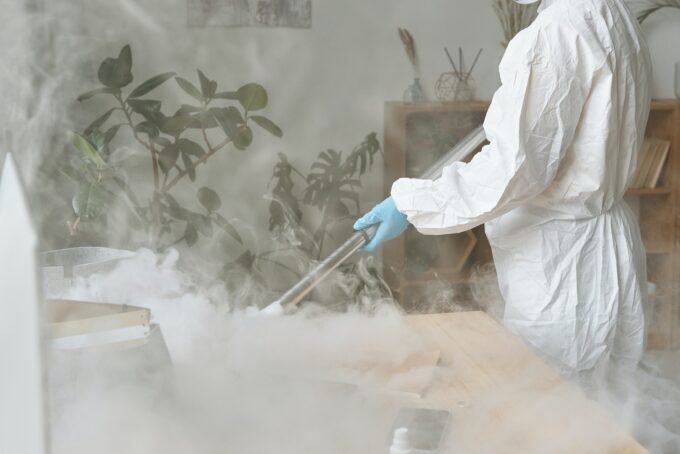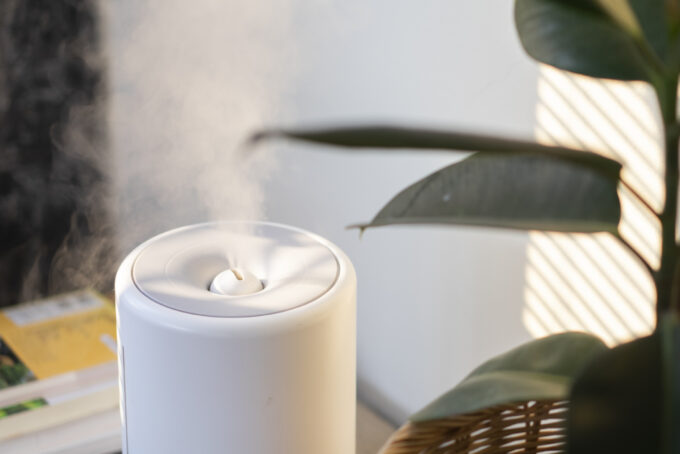Discovering that someone may have died in the home you now own can be an unsettling revelation — not to mention spooky. What’s even more shocking is that under most circumstances, sellers are not legally obligated to disclose this information unless specifically asked. This leaves potential homeowners like you in a peculiar situation, with the burden of uncovering the truth resting squarely on their shoulders.
However, with a little bit of detective work, you can uncover the secrets of your abode’s history. Learn all the ways you can find out if someone died in your home.
Research the History of Your Home
To know if someone has died in your home, conducting thorough research into the history of your property is a great place to start. Start by checking official death certificates, which are usually filed at the vital records office or the relevant government agency in your area. Documents contain vital details about the deceased, including the date, location, and cause of death.
In addition to death certificates, local newspaper archives can be a valuable resource. Search for obituaries or news articles that may reference incidents or deaths occurring in your home. Keep in mind that the level of detail and accessibility of these records may vary depending on the timeframe and locality.
You can also visit local archives or historical societies, as they often hold records and documents that can shed light on past events associated with your home. These resources may include old newspapers, property records, or even personal accounts.
When researching, focus on significant dates, notable incidents, or any reports of deaths that may have occurred within the property.
In addition to physical archives, consider exploring online resources that provide access to historical data. Websites specializing in genealogy, property history, or public records can be valuable tools in uncovering relevant information about your home’s past.
Remember to cross-reference any information you find with multiple sources to ensure accuracy. Sometimes, different records may provide additional details or confirmations, strengthening the reliability of your findings.

Connect With Previous Owners or Neighbors
If your neighborhood has seen some things, chances are your neighbors may have as well. Reach out to them or previous owners or long-term neighbors who may have knowledge about the property’s history.
While you may come up with nothing, you might walk away with a stronger sense of community and even learn you have more in common with your neighbors than you thought. And if they do have interesting stories to share, even better.
Identify Physical Traces
While it may give you the ick, physical traces within your home can potentially reveal if someone has died there. Pay close attention to the following indicators.
Stains and Discoloration
Inspect the walls, floors, and ceilings for any unusual stains or discoloration. Bloodstains or marks that suggest attempts to clean or cover them up might be indicative of a past incident. While stains can occur due to various reasons, such as accidents or medical emergencies, it’s important to assess the context and consider the possibility of a previous death.
If you notice suspicious stains, document them carefully and consider seeking professional assistance for further analysis. Forensic cleaners, trained in handling biohazardous materials, can help determine the nature of the stains and provide insights into their origin.
Lingering Odors
Unusual odors can be another sign that someone has died in your home. Decomposition or other biohazardous materials may leave persistent foul smells in certain areas. If you detect such odors, it’s worth investigating further.
Start by identifying the source of the smell. Check hidden or less frequently accessed spaces, such as crawl spaces, basements, or attic areas. If you’re unable to locate the source or if the odor persists, consider contacting professionals who specialize in odor detection and removal.
Unusual Structures or Modifications
Pay attention to any unusual structures or modifications within your home. Hidden rooms, sealed-off areas, or unconventional architectural features may warrant closer inspection. While these alterations can have innocent explanations, they might also be connected to attempts to conceal a previous death.
If you come across any suspicious or hidden spaces, exercise caution when exploring them. It’s advisable to consult with experts such as home inspectors or forensic cleaners who can assess the structural integrity and potential significance of these areas.
By carefully observing physical traces and considering their implications, you can gather additional evidence to support your investigation into whether someone has died in your home.
Remember to approach the entire process with sensitivity and respect for the individuals involved. Balancing curiosity with empathy will help create a compassionate and thorough exploration of your home’s history.
Seeking Professional Assistance
If all else fails and you’re unable to find conclusive evidence or if you’d prefer professional expertise, consider reaching out to the following experts:
Forensic Cleaners
Forensic cleaners specialize in cleaning and sanitizing spaces following traumatic events, including deaths. They possess the necessary equipment and knowledge to detect and handle biohazardous materials.
Home Inspectors
Professional home inspectors can examine your property for structural irregularities or hidden areas that may have been altered. They can also offer insights into any potential issues related to the property’s history.
Paranormal Investigators
If you suspect paranormal activity or residual energy associated with a death, paranormal investigators can help assess the situation using specialized equipment and investigative techniques. Their expertise can provide you with a different perspective and address any supernatural concerns.
Address Any Legal Obligations
If you discover that someone has died in your home, it’s essential to understand and fulfill any legal obligations regarding disclosure to future occupants when it’s time to sell your home. Consult with local legal professionals to ensure compliance with the necessary regulations.
popular posts
- 1It’s Black Business Month, So Let’s Go Shopping and #BuyBlack!
- 2These Home Decor Items Will Instantly Make Your Space Look Outdated
- 3Black-Owned Home Decor Stores To Support Across the United States
- 4A Look Inside Elon Musk's Tiny $50,000 House
- 57 Black and Multicultural Designers To Follow For Design Inspo
Home

These 5 Kitchen Tools Will Up Your Culinary Experience
by Arielle Clay | January 19, 2023

I’ll Drink To That! Host a Black-Owned Wine & Spirit Tasting At Home
by Arielle Clay | January 20, 2023
Spaces
Whether it’s luxury or ease, every area of your home should be as fabulous and unique as you.
How To Manage Indoor Humidity for Maximum Home Comfort
by Brittni Williams | June 22, 2023
Hunker Down: 5 Emergency Goods To Stock Up on in Times of Crisis
by Brittni Williams | June 12, 2023
FOLLOW ALONG ON INSTAGRAM
#homeandtexture
Find us on social for more home inspiration where culture, personal style, and sophisticated shopping intersect to help you create a home where you love to live.






